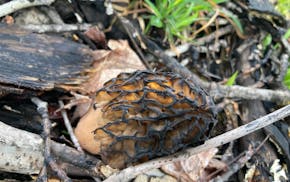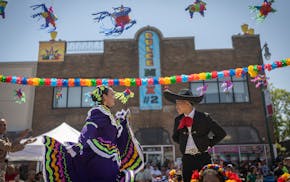Opinion editor's note: Strib Voices publishes a mix of guest commentaries online and in print each day. To contribute, click here.
•••
Despite calls for a presidential pardon by right-wing pundits claiming that George Floyd did something to cause his own death, the guilty verdict against Derek Chauvin stands, five years after the murder for which he is serving a 22-year prison sentence.
In interviews following the April 20, 2021, guilty verdict, jurors stated they were convinced that Chauvin indeed killed Floyd. The details were encapsulated in the testimony of Dr. Martin Tobin, describing "the moment the life goes out of [Floyd's] body" with his neck under Chauvin's knee.
That explained how. But neither then nor since have the jurors or anyone else ever been given an official reason why.
A widely believed answer is that Chauvin was a racist cop who didn't care about Black lives. That sparked a national reckoning on race, followed by the backlash against it in the second Trump administration. Supporting (but not proving) the bad cop notion is at least one account of Chauvin showing similar disregard to another Black person he previously apprehended.
But none of that made it to trial, with the judge tossing prosecutors' attempts to do so. And though she was on the witness list, the former club owner who astonishingly employed both Chauvin and Floyd wasn't called to testify either. That's despite her having alleged that just days before Floyd's killing, Chauvin had broken the arm of a Black youth. While there's no evidence she had any knowledge of the fatal encounter between Chauvin and Floyd, wouldn't her testimony have been helpful if the objective was to learn as much as possible about each man — especially from the one person documented as personally knowing them both?
I wondered that at the time, but when the case concluded, I realized the prosecution's goal wasn't why Chauvin did it, but simply that he did it. As for intent, in an October 2021 CNN interview, juror Jodi Doud said: "Wait a minute: Does the intended act of harm have to be the death of George Floyd, or can it be [Chauvin] not providing the life support?"
Jurors decided neglect was sufficient intent. But it still doesn't get at why.
Chauvin himself never said, opting not to speak in his own defense. At his 2021 sentencing, he gave a statement that could be a clue: Offering condolences to the Floyd family, he said while some "additional legal matters" prevented him from explaining further, there would be "some other information in the future that would be of interest" that he hoped would bring the family some peace of mind.
Four years later, that future still hasn't arrived. And only Chauvin can tell us why.
Robin Washington is a producer-host for Wisconsin Public Radio and a former editor-in-chief of the Duluth News Tribune. He lives in Duluth and St. Paul and can be reached at robin@robinwashington.com.
Opinion: Five years later, why Derek Chauvin killed George Floyd is still unknown

Brown: How little fish and secret mushrooms can salve Minnesota's culture wars
Opinion: I knew George Floyd and Derek Chauvin

